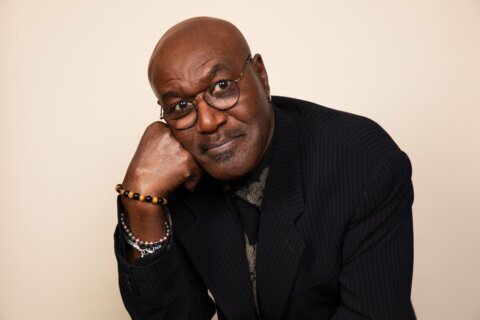In 2016, readers were riveted by Naomi Alderman’s bestselling science-fiction novel “The Power.”
Now, it’s a captivating TV drama that wraps its first season this Friday on Amazon Prime Video.
The series is set in our world but with one important sci-fi twist. On a seemingly ordinary day, young women across the globe suddenly develop a mysterious new ability to shoot electricity out of their hands — and transfer that spark to each other — threatening centuries of patriarchal rule with an instant reversal of gender dynamics.
The series is presented as a mosaic, so there is no true main character. It opens with Allie (Halle Bush) being adopted by abusive parents in the American Bible Belt, only to escape to a remote convent run by a transgender nun (Daniela Vega). Renamed “Eve,” she leads other disciples who possess The Power, while hearing a divine voice (Adina Porter). Yes, this “Voice of God” is a Black woman because God transcends our mortal gender constructs.
We also follow Seattle Mayor Margot Cleary-Lopez, played by Toni Collette, who rocks every role she’s in from “The Sixth Sense” to “Little Miss Sunshine” to “Hereditary.” Her husband Dr. Rob Lopez (John Leguizamo) does most of the housework to raise their kids, Jos (Auliʻi Cravalho, “Moana”), who dates her trans pal Ryan (Nico Hiraga), and Matty (Gerrison Machado), who subscribes to the misogynistic conspiracy theories of UrbanDox.
Other storylines include Ria Zmitrowicz as Roxy Monke, the illegitimate daughter of British gangster Bernie Monke (Eddie Marsan), and Zrinka Cvitešić as Tatiana Moskalev, who once dreamed of becoming an Olympic gymnast before being married off to the aging Moldovan president Viktor Moskalev (Alexandru Bindea). These two subplots show desperate young women breaking life-or-death cycles of male violence and corruption.
Chronicling all of these cases is Tunde (Toheeb Jimoh, who plays Sam Obisanya in “Ted Lasso”), an aspiring video journalist from Nigeria who makes it his personal mission to document global instances of The Power. Confiding in his close friend Ndudi (Heather Agyepong), Tunde routinely puts himself in harm’s way to film protests by Middle Eastern girls in hijabs as they riot against the traditional laws of their oppressive, male-dominated governments.
As a viewer, it can be tricky to keep track of all of these different storylines, especially late at night, so you’ll want to give this series your full attention like the great mosaics of Robert Altman’s “Nashville” (1975) or Paul Thomas Anderson’s “Magnolia” (1999). This isn’t something you watch for mindless escapism; this is a series you carefully consume, but if you give it the time it deserves, the result is a searing social commentary on gender constructs.
Most refreshing is that the writers don’t rely on the lazy crutch of supernatural ambiguity. Instead, they “science it up” with realistic explanations for maximum believability. Rather than some magical power like many superhero flicks, the women’s ability to electrocute is a biological extension of evolution with the growth of a new organ called the “skein” inside their chests. News programs and press conferences help flesh out the scientific details.
Will women leaders change the world into a more peaceful place? Or will absolute power corrupt absolutely with women leaders becoming no different from the enslaving, fearmongering, war-making men of history? These big questions won’t be solved by Friday’s Season 1 finale, requiring many more seasons to explore, but in a country that still hasn’t had a woman president, it’s about time we give it a shot in both TV shows and real-world politics.








